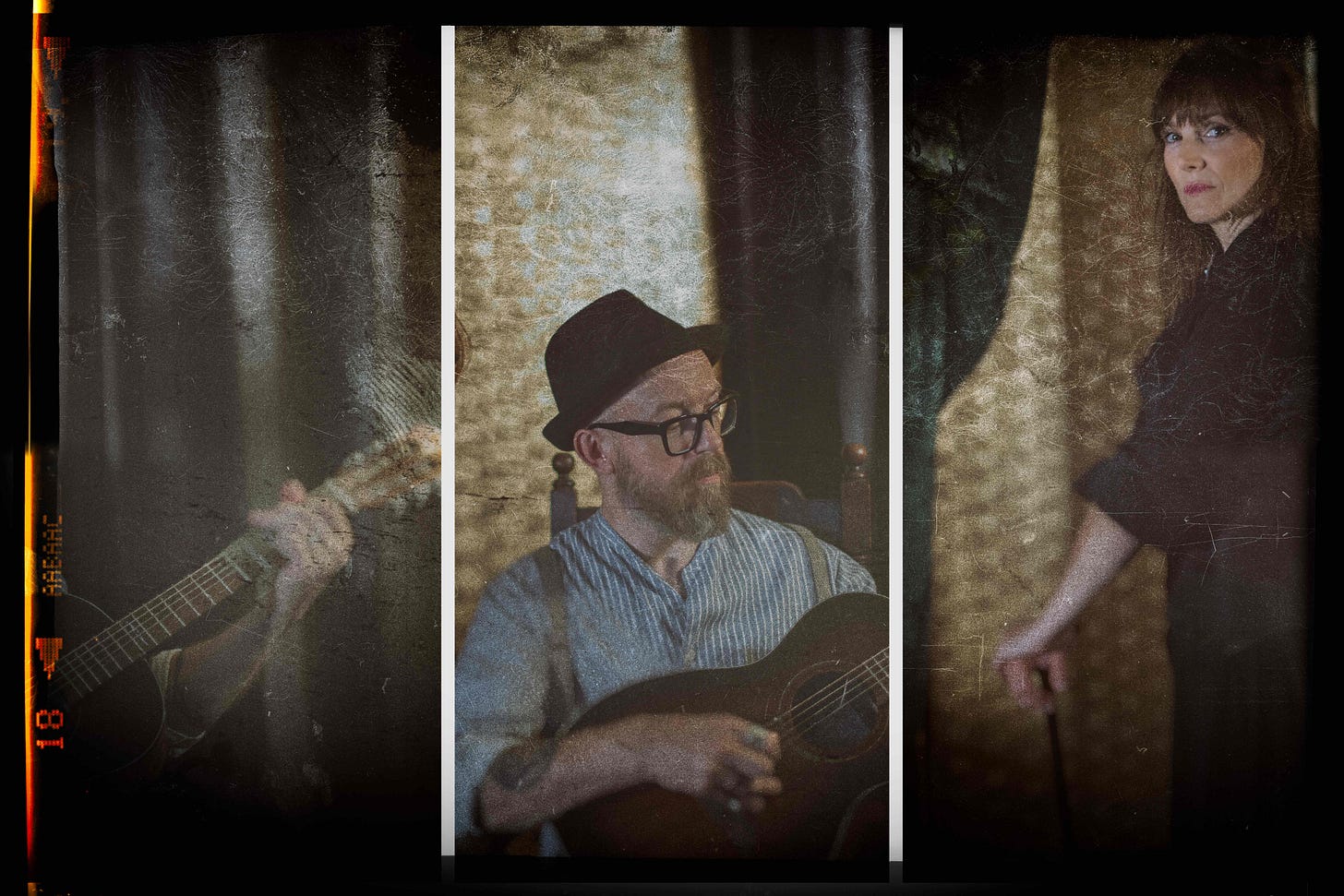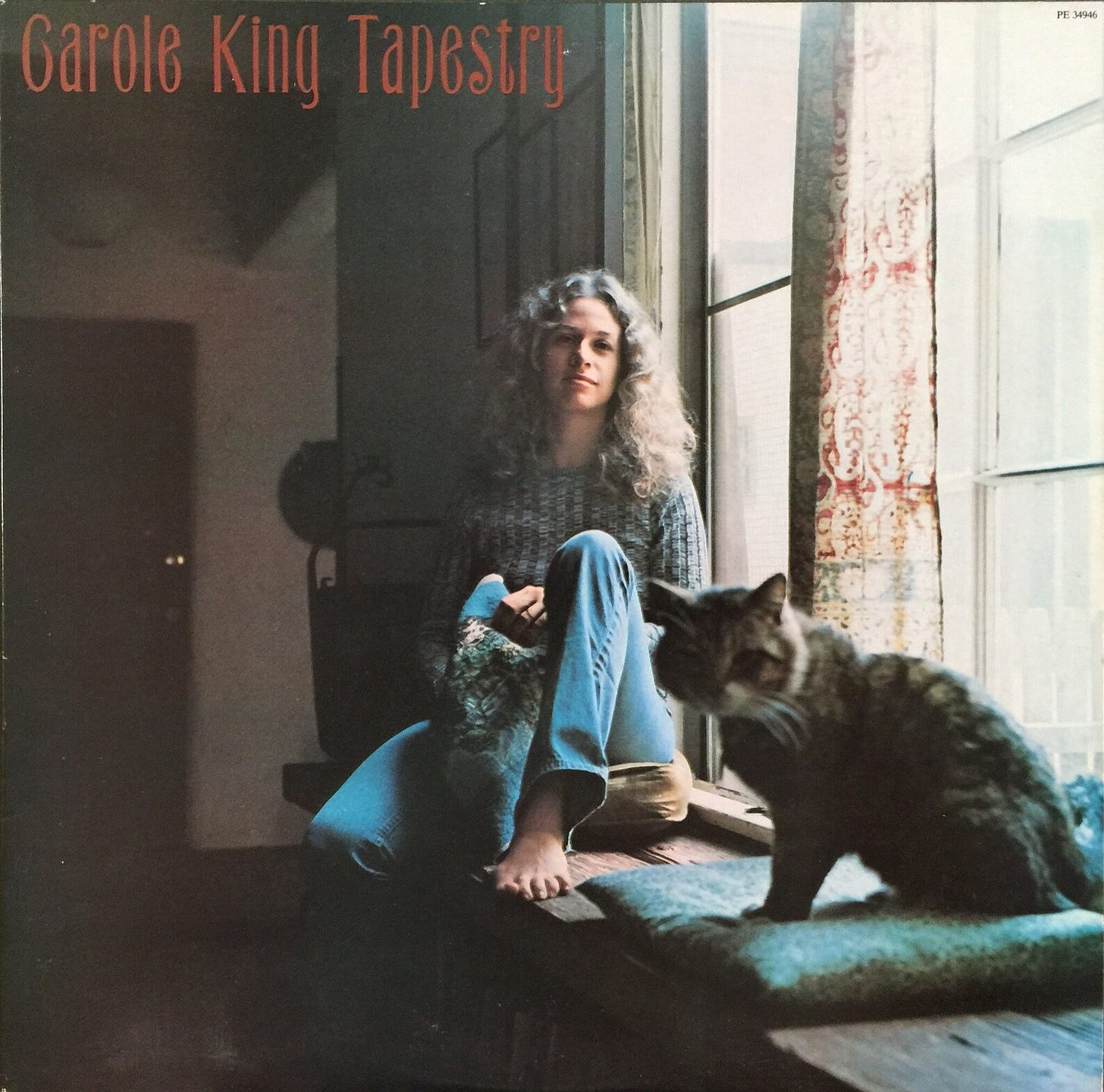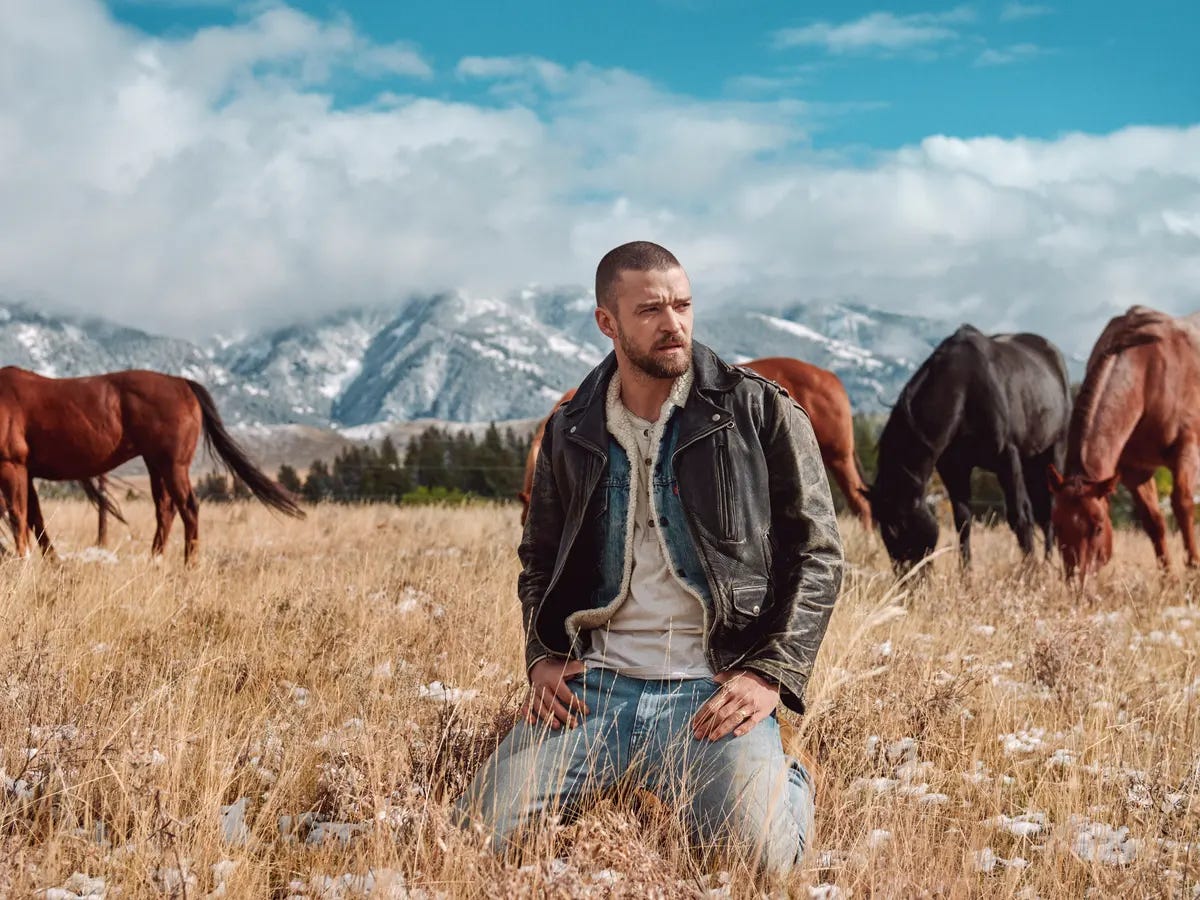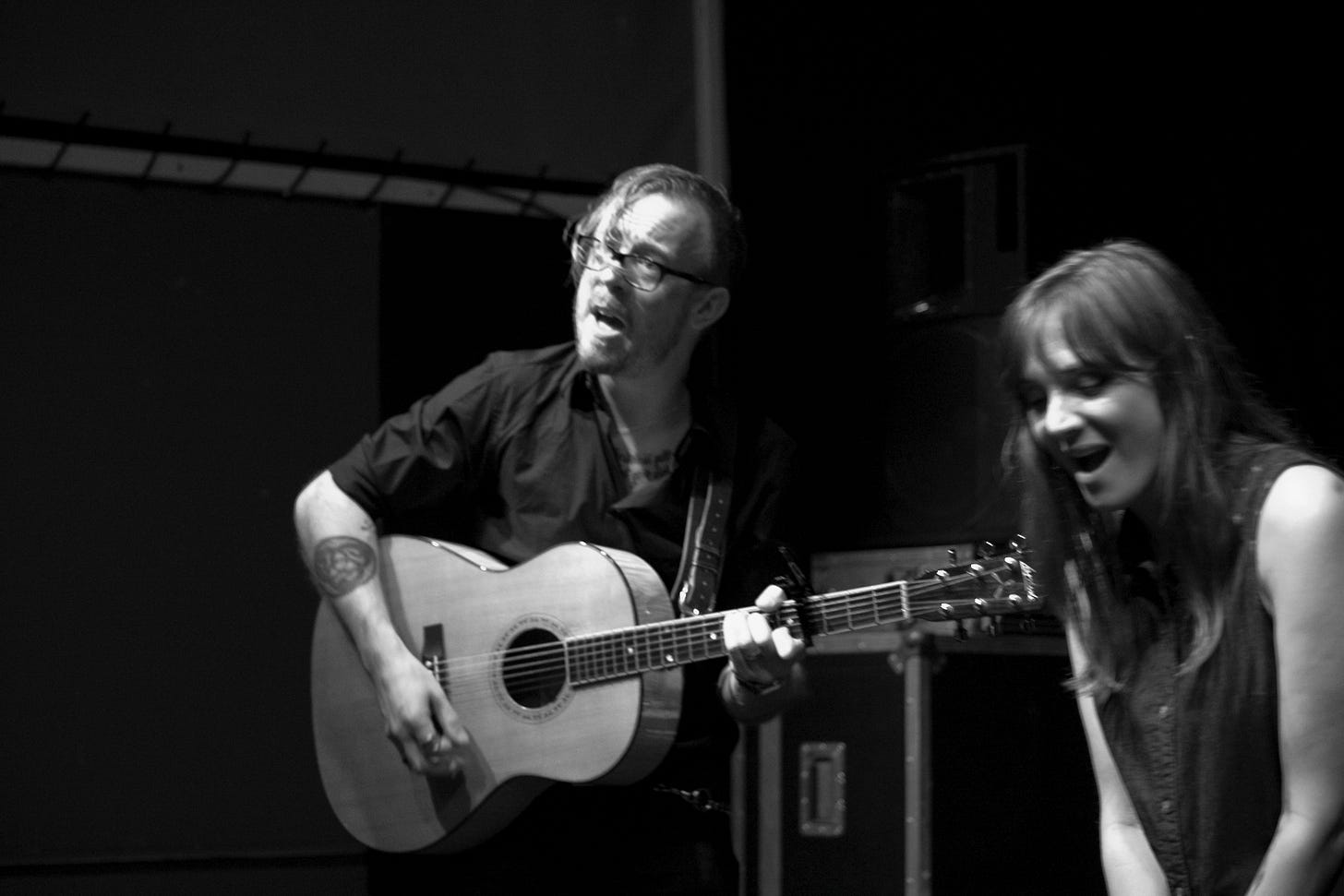
One of the reasons I don’t spend too much time on the Internet is because of all the opinions. Give a man a fish and he’ll eat for a day; give a man a fishing rod and he’ll eat for a lifetime; give a man a keyboard, wi-fi and a comments section and he’ll bang out 500 words on something that was better in 1967 / 1984 / 1998 until the cows not only come home, but leave home again for the slaughterhouse, eventually becoming burgers for another guy in his basement to eat as he’s ‘correcting’ someone under a customer review of yet another Dylan biog on Amazon.
Challenged, he’ll (it’s almost always a ‘he’) invariably resort to the inevitable “I’m entitled to my opinion,” instead of the more accurate response, which is just the first two words of his defence.
Ironically, this post is going to involve my opinions, but I don’t really feel entitled to them in this instance; more wearied by them; more annoyed that I have to have them in the first place. Frankly, there are better things to do than have opinions on this particular subject, but - because it’s related to our work as songwriters, and these ideas still persist - I’ve been developing them, kind of like athlete’s foot or aching knees. To add to the confusion, these are opinions on opinions: what I think about a mistakenly held notion. And there are two of them. Two opinions held by people who aren’t me, that might need addressing before we start making things (instead of having lots of opinions).
The first one is easy. It’s this:
“Music just isn’t as good as it used to be”.
Bullshit. OK ? Go and spend an hour on Bandcamp instead of replying in all-caps to other people’s Twitter posts. Done. Moving on.
The second one is more insidious. It has a few more layers, like a tiny dried-up, scrotal-looking onion with something unpleasant squirming about in the middle. It goes something like this:
“A song is only good if you can sing it and accompany yourself with one instrument”.
Remarkably, even in 2023, variations on this opinion are alive and well and inhabiting a gated community somewhere in the Hollywood hills. I even hear it from my songwriting students from time to time, though they tend to be the ones who have inherited Dad’s (or - worse - Grandpa’s) record collection. I’ve even heard musicians wheel it out, like an elderly relative who gets to be an asshole just because they can remember Woodstock.
The two metaphors in the previous paragraph are possibly telling. Our idea of musical authenticity can seem forever tied to that period in the late 60s / early 70s when an acoustic guitar (or piano), a cheesecloth shirt and a folding of the the metaphysical / personal / unconscious into your lyrical themes became synonymous with the A-word.
Which is strange when you consider that Merriam-Webster defines authenticity thus:
“True to one's own personality, spirit, or character”.
My hope is always that this definition has some kind of fluidity built-in; surely those three things are in a constant state of flux whether you’re an artist or not. That’s why opinions on the Internet can be so exhausting. All too often, they seem to be hewn into solid rock as anchors for the incurious; people who actually mistrust change - fear it even - especially in themselves. So, why would an artist - someone who aims to embrace change to the point of some kind of regular creative transfiguration; or a music fan - who recognises that impulse in the artists they love, reduce authenticity to such a simplistic trope ?
Look at the Carole King album cover above. The signifiers of the ‘authentic’ singer-songwriter are all there: the candid, amateur snapshot quality of the pic with the out-of-focus cat; the barefoot, jeans-and-a-sweater unpretentiousness of Carole’s outfit (she’s just there to write songs - not to entertain her rock star friends); the comfortable-but-not-luxurious surroundings; the intimacy of the moment. The camera tilts upward, suggesting perhaps that she’s somehow elevated by her work. And have we just interrupted her reverie as she gazes out of the window, a lyric perhaps forming in her head ?
I guess the truth is that, even just as people, we recognise this as an aspirational scenario (who doesn’t want to sit around all day in the sun and have ideas ?), but as songwriters there’s a danger that we view it - through a ubiquity that comes in no small part from the white men who ran most of the music industry in the 70s, selling the white people who populated it - as a ‘truthful’ depiction of authenticity. I don’t think it’s just me who fights back images of Neil, Joni, Dylan, Little Baby James, grumpy Cros, beautiful Jackson, Leonard and the Laurel Canyon gang when this word gets bandied about in a singer-songwriter context, though I suspect that we’ll have ethnicity, age and background in common, broadly speaking.
Or perhaps these signifiers are deeply ingrained enough that subsequent generations are not beyond repeating them.
Definitions of authenticity originating from other cultures were sidelined for those key years because of who was controlling the narrative, but even when Hip-Hop became the dominant musical force of the 90s, it could still be trivialised as not being ‘real music’ with one strum of an acoustic guitar, some meaningful gurning and that statement again:
“A song is only good if you can sing it and accompany yourself with one instrument”.
House music, rooted in Queer culture, is also - in the terms outlined above - relegated to mere novelty. This doesn’t seem coincidental.
More generally, authenticity becomes a hammer with which the less enlightened Baby-Boomers and Gen X-ers can fashion their armour against change, and we all - to varying degrees - bought into this idea as the words ‘acoustic’ and ‘unplugged’ became sales tools in the 90s / 00s. Don’t get me wrong, I’m not criticising the performances or the artists, or even the format; just the perception of the format itself as bestowing more meaning on a song.
“A song is only good if you can sing it and accompany yourself with one instrument”.
So, what about Dancing Queen or Good Vibrations ? Yes, I’m sure Brian, Anni-Frid, Agnetha and the boys, could perform those songs with just a piano, but they wouldn’t sound as good: the arrangements are too enmeshed with the compositions. Or is our statement nothing to do with heightening meaning and just about a measurable, scientific way for establishing some kind of quality control ? To what end ?
“A song is only good if you can sing it and accompany yourself with one instrument”.
Five words: Killing In the Name Of.
Four words: Sign o’ the Times
Three words: Strawberry Fields Forever
Two words: No Diggity.
One word: Idioteque.
What about Bjork’s Pagan Poetry ?
SOPHIE’s exhilarating new sonic vocabulary for pop music, reduced to a piano and a voice ? Why ? She’s transformed the lexicon, why change it back ?
Kate Bush’s Running Up That Hill would be deprived of all of the texture and production that helps tell the story of the song (see my last post on how we can make a song sound like what it’s about).
How would Get Up (I Feel Like Being a) Sex Machine work in this format ?
Can it be as simple as a couple of generations needing to lose their remaining hearing and access to wi-fi ? In fairness, it does seem to be getting better, though of course that’s not really for me to say. Stormzy, for example, is regarded as about as authentic as an artist can get, and I don’t suppose there’s anyone worrying about whether he can perform Vossi Bop accompanied by a grand piano in order to validate its provenance.
“A song is only good if you can sing it and accompany yourself with one instrument”.
I’m not accusing people who hold this opinion of conscious prejudice, just to be clear. I am instead suggesting that we identify and own any unconscious bias that might be attached to it. The myth of the blonde singer-songwriter sitting on the edge of a patchwork quilt with an acoustic guitar as light streams in through a Laurel Canyon window now just seems a little irrelevant. And, like Taylor and Justin, we’ve not exactly been immune to its visual iconography (see the photo at the beginning of this post).
But expressing parts of your creative identity via certain familiar visual signifiers is not the problem; rather the long-held and potentially exclusionary aspects of the industry that initially informed them is. We, basically, still get sucked into the idea that songs should be built from some kind of an ‘honest’ core involving ‘real’ instruments and ‘proper’ musicians in order to have worth. The word ‘organic’ gets hoisted up on to shoulders like a bag of overpriced potatoes.
If we slip back in time to Dylan’s Manchester ‘Judas !’ moment in 1966, we can observe an early iteration of this attitude, the irony being that all those Folk purists (a collective descriptor which already has more than a whiff of the nationalistic) could perhaps have unleashed their outrage a few years earlier when he first picked up a Martin 00-17 to accompany his voice, with English Folk music and the acoustic guitar only really becoming associated during the movement’s second revival, post World War II.
With the exception of our album Wapentak - which was designed to be played acoustically because there were only two people in the band at the time - much of the Sweet Billy Pilgrim catalogue wasn’t written on a single instrument: a verse coalescing out of a lo-fi sample or an autoharp part; a chorus constructed from harmonising bass guitars; a bridge emerging from hours spent programming a piano sequence. If we want to create an acoustic version of one of our songs for the two of us to play, we are effectively figuring out a cover version of our own material, and some of it is entirely resistant to this process. By the metric we’re using here, those songs are bad. Well, fuck that.
I like that imagination can now trump virtuosity; that we can build worlds from laptops using samples we’ve recorded with our phones. I love that a loop or texture can tell us what a song might be about, before we’ve even established chords or a melody. Whether I’m writing or listening to one, I like trying to solve the mystery of a song, and that statement feels like a reduction; a weirdly mundane boiling down of the creative bones so that people with a limited imagination can understand.
“A song is only good if you can sing it and accompany yourself with one instrument”.
So - nope. I still don’t buy it.
When Jana and I sing close harmony together over an acoustic guitar, I often can’t help but get teary. It’s a means of expression that all humans innately understand, and it’s a privilege to be able to share in it. Often, the space created by an acoustic performance can illuminate a song, but that’s different from validating it. We’re not qualifying our authenticity any more than we do with our tuned dishwashers or pitch-shifted ukuleles: it’s just another way of exploring what it is to be human, and then sharing it in the best way we can.







Preach! ❤️❤️
"I like that imagination can now trump virtuosity"
Roger that.